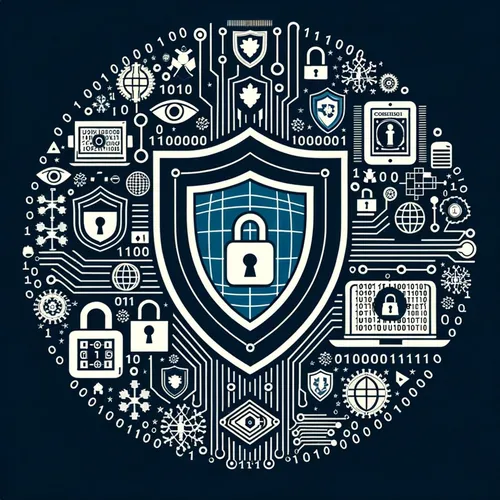Cyber Chaos: DOJ Unleashes Data Dragon, Hacker Nabbed, AI Arms Race Heats Up!
- Author
- Quiet. Please
- Published
- Wed 09 Jul 2025
- Episode Link
- https://www.spreaker.com/episode/cyber-chaos-doj-unleashes-data-dragon-hacker-nabbed-ai-arms-race-heats-up--66917995
This is your Tech Shield: US vs China Updates podcast.
Listeners, it’s Ting, your cyber-obsessed friend who sleeps with one eye on a Wi-Fi analyzer and the other on China’s threat signals. Let’s fast-forward straight into this week’s wild ride on Tech Shield: US vs China Updates.
The biggest headline? The US Department of Justice is officially flipping the switch on its new Data Security Program—or DSP—today, July 9, 2025. This beast of a rule clamps down on sending US personal and government-related data to “countries of concern,” with China at the top of that list. US companies now face stringent compliance checks and detailed reporting requirements. The DOJ had given everyone a 90-day breather, but as of today, enforcement is live and everyone’s nerves are fried. Industry legal teams have been binge-reading the NSD Data Security Program Compliance Guide and FAQs like they’re cyber-thrillers, but the real drama begins now as enforcement kicks in and companies scramble to avoid massive fines.
Hot on the heels of rule changes, the FBI, together with Italian authorities, nabbed Xu Zewei—a Chinese hacker linked to that infamous COVID-19 research breach. Former State Department cyber lead Teddy Nemeroff put it plainly: this is a signal that the US is ramping up international cooperation—even when the extradition dance gets diplomatically awkward. The University of Texas Medical Branch, one of Xu’s targets, is breathing easier today, but everyone else is bracing for the next wave.
The Cybersecurity & Infrastructure Security Agency, or CISA, is firing off advisories on the regular. This week, their focus is on exploits leveraging AI for phishing and ransomware, especially those poking holes in medical and energy systems. Hospitals, in particular, are feeling the pain, as cyberattacks on healthcare have now tripled since 2015. Linda Stevenson, CIO at Fisher-Titus Medical Center, warned that budget cuts and a recent pullback from federal advisory councils have left critical infrastructure dangerously exposed.
Meanwhile, behind the headlines, the US-China tech arms race is heating up. According to analysts at Cobalt.io, China is pouring over 700 billion yuan into AI this year, powering both defensive and offensive cyber capabilities. The US is countering by walling off Chinese AI from government networks and shoveling resources into autonomous security and rapid vulnerability patching. But here’s the kicker: with an ever-expanding field of IoT devices and deepfake-powered attacks, the defensive tech still feels half a step behind.
Industry leaders are also sounding the alarm about the expiration of the Cybersecurity Information Sharing Act, the legal shield that lets companies flag threats without tripping over privacy lawsuits. Annie Fixler at the Foundation for Defense of Democracies says if Congress doesn’t reauthorize it before September, threat intel sharing could grind to a halt—and that’s an open invite for adversaries.
Expert view? It’s a mixed bag. The new regulations are a positive jolt, and high-profile arrests like Xu’s show global cooperation works. But there are real gaps: hospitals are uniquely vulnerable, AI-powered threats are outpacing old defenses, and Congressional gridlock could sabotage information sharing just when we need it most.
Thanks for tuning in to Tech Shield! Don’t forget to subscribe for next week’s deep dive. This has been a quiet please production, for more check out quiet please dot ai.
For more http://www.quietplease.ai
Get the best deals https://amzn.to/3ODvOta
